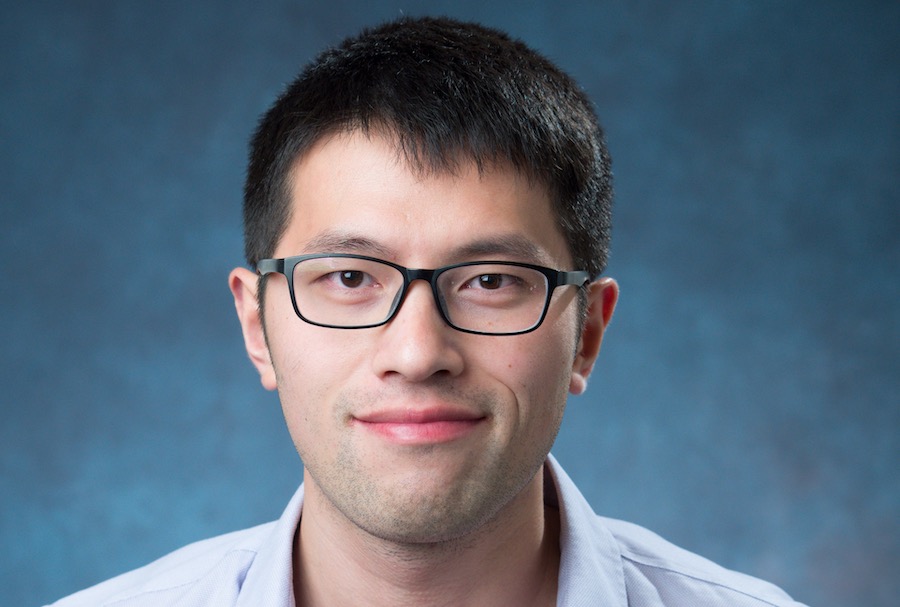New Asst. Prof. Chenhao Tan Explores The Future of Human-Centered AI

Once considered a remnant of retro science fiction, the hype around artificial intelligence has never been louder. Tech companies touting AI-driven innovation in every industry have promised that computers can, or soon will, do many common tasks faster and more accurately than people, improving efficiency, fairness, and profits. But an alternate view has emerged among AI experts and researchers for a more cooperative use of the technology, where computer models and humans work together, complementing each other’s strengths and weaknesses.
Chenhao Tan, who joined the University of Chicago Department of Computer Science as assistant professor in January, sits at the crest of this research wave. Using approaches from computational social science, machine learning, and natural language processing, he has moved from understanding social media to his current focus on human-centered AI, where his research is organized around a big question: not only what AI can do, but also what AI should do for people.
“I am interested in what we can learn about people with data and computation, and how we can use technology to enhance people and more broadly lead to a better society and improve our lives,” Tan said.
Those interests place Tan at the intersection of many fields: computer science, data science, and human-computer interaction mixing with linguistics, psychology, and public policy. The University of Chicago’s strengths across all those disciplines attracted Tan to his new home, and in addition to his CS title he will also hold an appointment at the Harris School of Public Policy and will be involved in new data science initiatives.
Analyzing the Chatter of Social Communities
After studying computer science and economics as an undergraduate at Tsinghua University in China, Tan’s interests began shifting towards online communication as a PhD student at Cornell. There, he became interested in how language affects social dynamics, and how particular word choices can affect another person’s behavior or opinions.
The research bloomed into a 2016 paper where Tan and colleagues applied machine learning and NLP methods to data from a Reddit community called “ChangeMyView.” On this forum, users state an opinion and why they hold it, and other users try to change their mind. Tan’s team scraped this data and used it to study persuasion, finding links between the style of how opinions are communicated and the likelihood of that opinion changing. For example, people who used plural first person (“We believe”) instead of singular first person (“I believe”) were less likely to have their minds changed by subsequent posts, while arguments that followed the original author’s style were more persuasive in altering their opinion.
Tan also used social media and internet data to study how language and social dynamics influence the likelihood of information being reshared and the duration of news cycles. He has also examined how people “migrate” through online communities, with implications for radicalization and how content moderation can bring out the best, instead of the worst, in online conversations. His projects received widespread coverage from publications such as the New York Times and The Washington Post.
“We now have this huge amount of data about human behavior that we never had access to before. Using an analogy from Duncan Watts, it's almost like having access to a telescope so that we can see the universe much better than we used to,” Tan said. “It opens up exciting opportunities to better understand human behavior and better shape our society, and I think computer science is a big part of that, to be able to make sense of this huge amount of data.”
Redrawing the Human-Machine Loop
In his subsequent stops at University of Washington and University of Colorado, Boulder, Tan’s research focus shifted to the integration of artificial intelligence into our society. With companies rushing towards using AI in everything from autonomous vehicles to medical diagnosis and criminal sentencing, there’s an urgent need for research on what tasks AI can successfully tackle, as well as the consequences of using it improperly.
By applying some of the insights from his research on online communication to this new field, Tan hopes to create AI systems that work effectively with humans, augmenting work and creativity. The work draws upon his previous studies of human-to-human communication, using those insights to improve how humans interact with their increasingly intelligent machines, and vice versa.
“I’m thinking about how the computers can interact and take advantage of this understanding of human behavior and actually help people in various scenarios,” Tan said. “As AI performance becomes better and better, there is a deeper and deeper integration between technology and humans. Many interesting issues arise and require insights from many diverse disciplines.”
Thus far, the research has included explorations of what tasks humans are comfortable with delegating to AI and how AI-human teams can perform more effectively on detecting deceptive text; in this case, real vs. fake hotel reviews. As a test of whether AI can help beyond analytic tasks, he built a “machine-in-the-loop” system for creative writing, where the computational collaborator suggests words or sentences based on what the human has already written.
Long term, Tan imagines systems that reverse the current “human-in-the-loop” paradigm, where people merely confirm the binary decisions of an AI or provide it with accurate training data. Instead, he views AI as intelligent advisors making explainable suggestions on complex matters such as setting bail or medical treatment that humans can blend with their own expertise, values, and judgment.
“Legal, medical, and policy decisions are often made in a somewhat brittle way despite their importance, by only a single person, or a handful of people with very little help,” Tan said. “AI can provide immense benefits because once you figure out how to effectively assist decision makers, then AI can scale up and assist everyone in these decision-making processes.”
To realize this vision, he’ll work on the CS fundamentals of concepts such as explainable AI and human-AI interaction through his Chicago AI Lab (CHAI), and bring his human-centered AI course to UChicago CS in spring quarter. Tan also looks forward to exploring applications of the work with researchers from across campus, both through his role at Harris (which includes teaching in the M.S. in Computational Analysis & Public Policy program) and through collaborations with the Medical Center, Booth School of Business, and other units.
“My work is fundamentally about people,” Tan said. “UChicago has been fantastic in economics, policy, and other social sciences, and I would love to build a bridge between these existing strengths and CS.”












